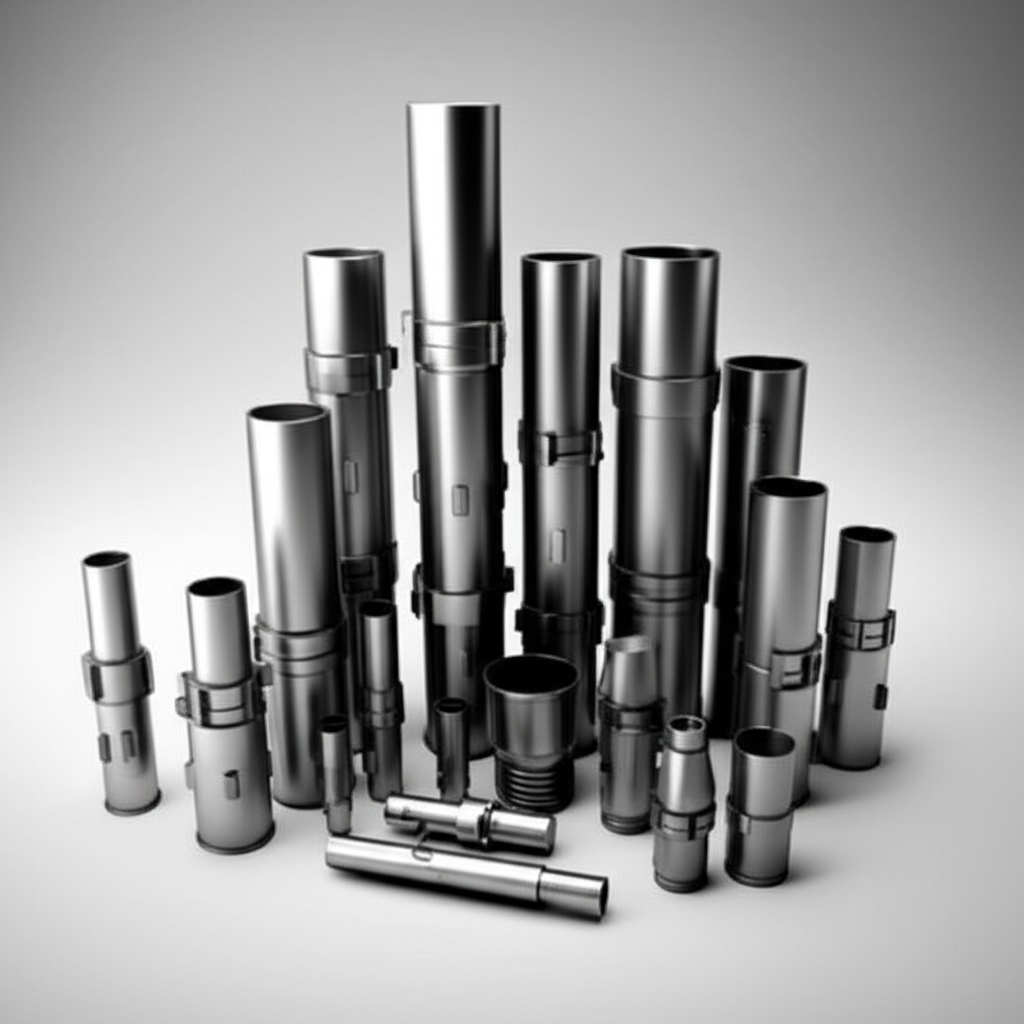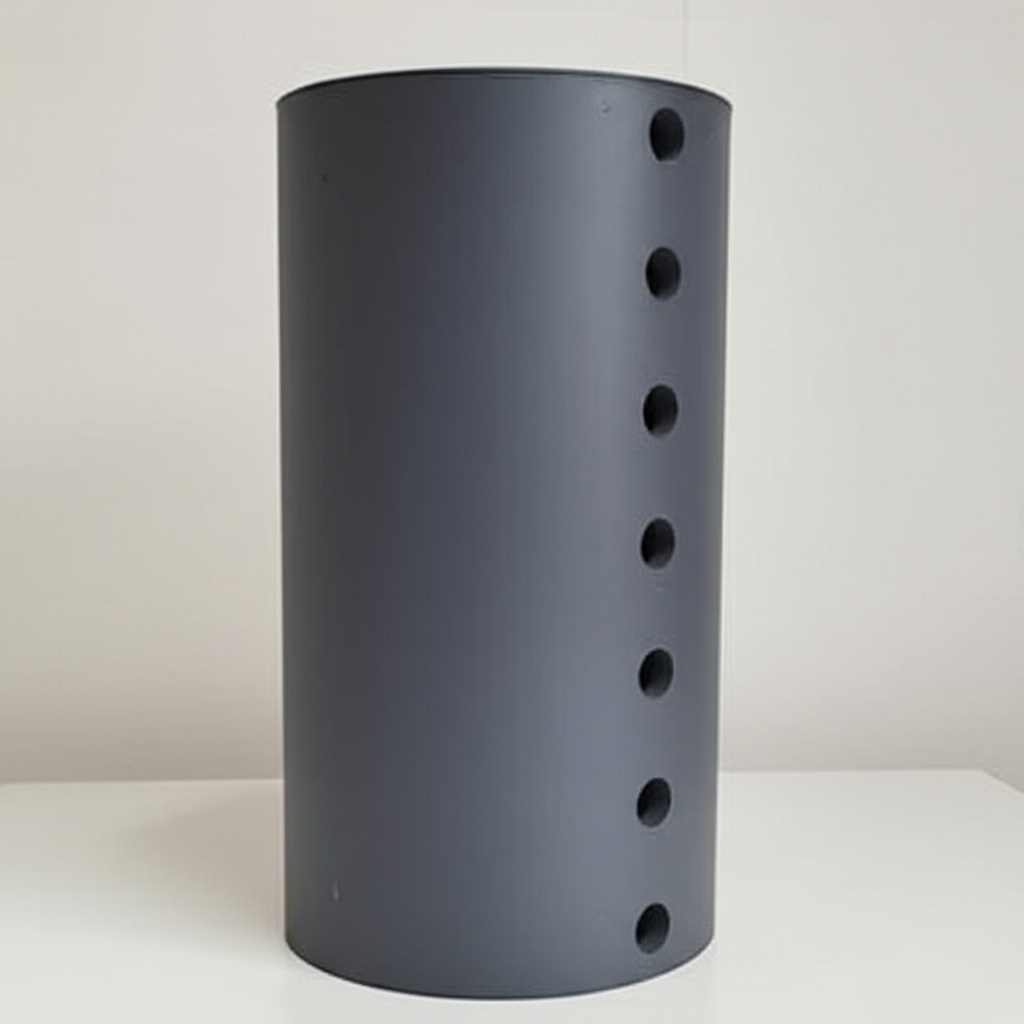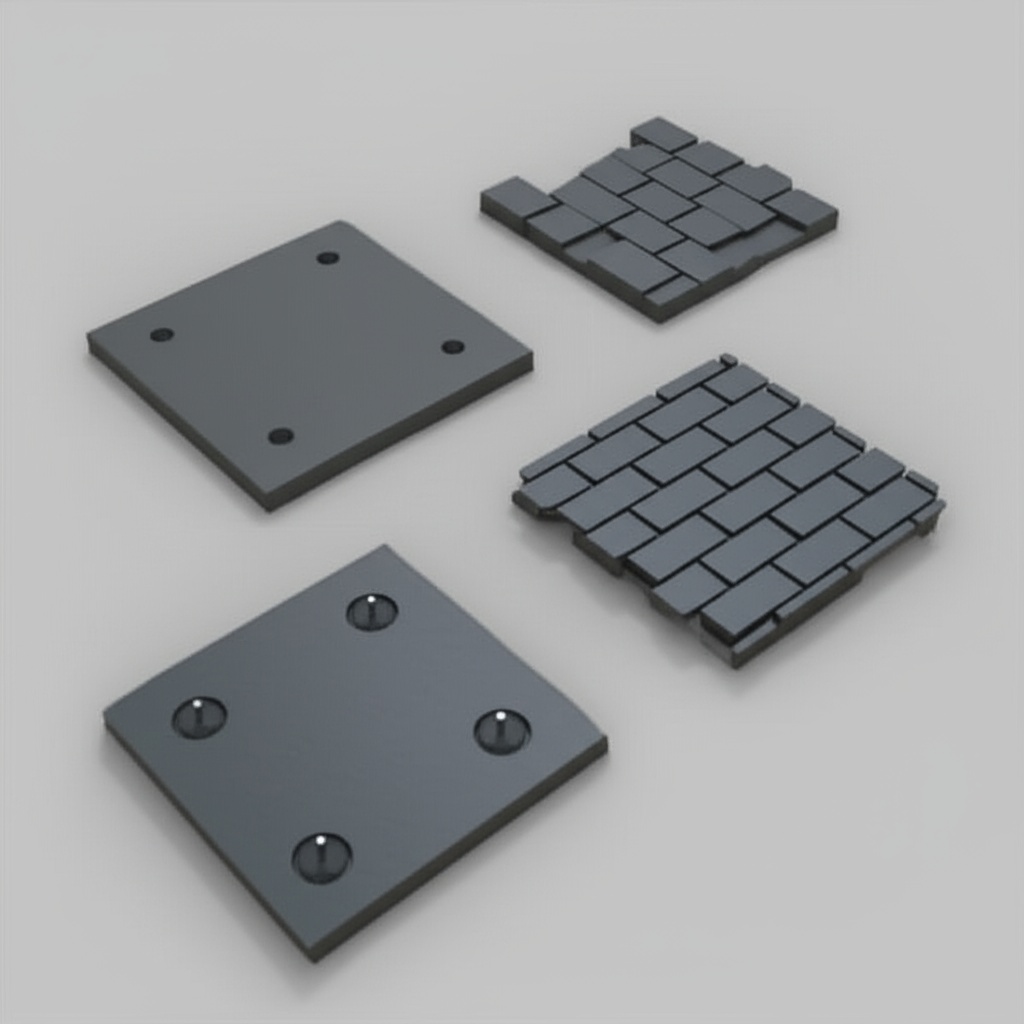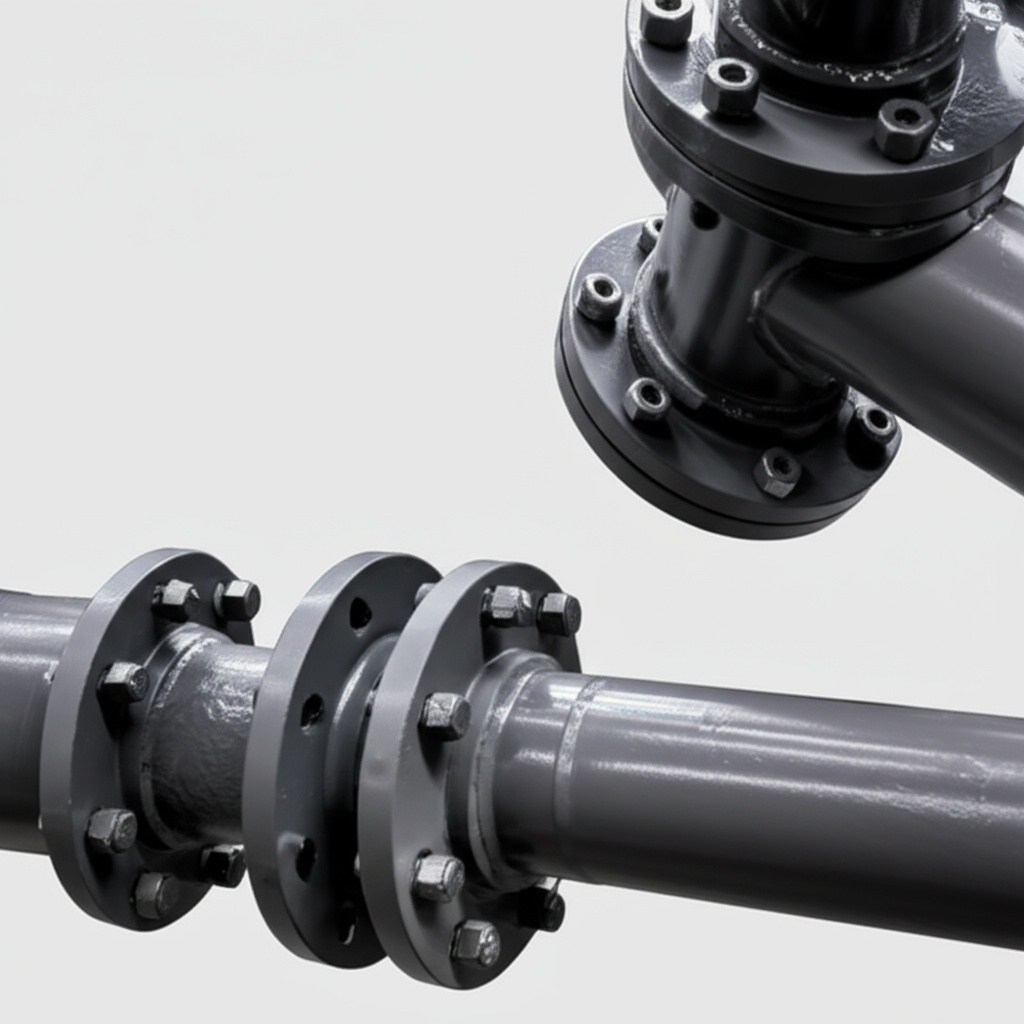Vietnamese SiC Products for Various Industries

Share
Vietnamese SiC Products for Various Industries
In today’s rapidly advancing technological landscape, industries demand materials that can withstand extreme conditions, offer superior performance, and ensure long-term reliability. Custom silicon carbide (SiC) products stand at the forefront of this demand, providing unparalleled solutions for a myriad of high-performance industrial applications. From the microscopic precision of semiconductor manufacturing to the high-temperature demands of aerospace, SiC is revolutionizing how critical components are designed and produced.
This comprehensive guide delves into the world of custom silicon carbide, exploring its vast applications, inherent advantages, and the intricate considerations involved in its design and manufacturing. We aim to provide engineers, procurement managers, and technical buyers with the essential knowledge needed to leverage the full potential of SiC for their specific industrial needs.
Main Applications of Custom SiC Across Industries
Silicon carbide’s unique properties make it an indispensable material across a broad spectrum of industries, enabling breakthroughs and enhancing the performance of critical systems. Its versatility allows for a wide range of applications where traditional materials simply fall short.
- Semiconductor Manufacturing: SiC is crucial for fabricating wafer processing equipment, susceptors, boat components, and furnace liners due to its thermal stability, high purity, and resistance to plasma etching. Its role is vital in producing advanced integrated circuits and power devices.
- Automotive Components: As the automotive industry shifts towards electric vehicles (EVs), SiC is increasingly used in power electronics for inverters, on-board chargers, and DC-DC converters, offering higher efficiency, reduced size, and improved thermal management.
- Aerospace Materials: For high-temperature environments in aircraft engines, rocket nozzles, and thermal protection systems, SiC provides excellent strength-to-weight ratio, high thermal conductivity, and superior oxidation resistance.
- Power Electronics Manufacturing: SiC power devices enable higher power density, faster switching speeds, and lower energy losses compared to silicon-based devices, making them ideal for renewable energy systems, industrial motor drives, and uninterruptible power supplies (UPS).
- Renewable Energy Systems: SiC’s efficiency benefits extend to solar inverters and wind turbine converters, contributing to more effective power conversion and reduced system costs in sustainable energy solutions.
- Metallurgy and High-Temperature Processing: Due to its exceptional refractoriness and resistance to thermal shock, SiC is used in furnace components, crucibles, and kiln furniture for various metallurgical processes, including aluminum reduction and steelmaking.
- Defense Contractors: In defense applications, SiC finds use in lightweight armor, high-performance optical systems, and missile components, benefiting from its hardness, stiffness, and thermal resilience.
- Chemical Processing Companies: Its outstanding chemical inertness makes SiC suitable for pump components, valves, nozzles, and heat exchangers in aggressive chemical environments where corrosion resistance is paramount.
- LED Manufacturing: SiC substrates are increasingly employed in high-brightness LED production, offering superior thermal management and crystal quality for enhanced device performance and longevity.
- Industrial Equipment Manufacturers: For wear parts, seals, bearings, and nozzles in demanding industrial machinery, SiC’s extreme hardness and wear resistance significantly extend component lifespan and reduce maintenance.
- Telecommunications Companies: SiC’s thermal management capabilities are valuable in high-power RF devices and base station components, ensuring stable operation and improved efficiency.
- Oil and Gas Companies: In downhole tools, pumps, and valves exposed to abrasive slurries and corrosive fluids, SiC’s durability and chemical resistance provide reliable performance in harsh conditions.
- Medical Device Manufacturers: Biocompatible and wear-resistant SiC can be found in some surgical tools and implantable devices, offering longevity and inertness.
- Rail Transportation Companies: SiC power modules are being adopted in traction systems for trains, leading to more efficient and compact power conversion units.
- Nuclear Energy Companies: SiC is a promising material for next-generation nuclear reactor components due to its radiation resistance, high-temperature stability, and low neutron absorption cross-section.
Why Choose Custom Silicon Carbide Products?
While standard materials offer a baseline, the true power of SiC is unleashed through customization. Tailoring SiC products to specific application requirements offers a multitude of benefits, optimizing performance and extending operational life.
- Optimized Performance: Custom designs allow for precise control over material properties, geometry, and surface finish, ensuring the component performs optimally in its intended environment.
- Superior Thermal Resistance: SiC maintains its mechanical integrity and strength at extremely high temperatures, far exceeding those of many traditional ceramics and metals, making it ideal for furnace linings, heat exchangers, and high-temperature processing equipment.
- Exceptional Wear Resistance: Its remarkable hardness, second only to diamond, provides unparalleled resistance to abrasion and erosion, significantly extending the lifespan of components in abrasive applications like pump seals, nozzles, and bearings.
- Outstanding Chemical Inertness: SiC is highly resistant to chemical attack from acids, bases, and corrosive gases, making it an excellent choice for components used in harsh chemical processing environments.
- High Strength and Stiffness: With a high modulus of elasticity, SiC offers excellent structural rigidity and dimensional stability, even under significant loads and varying temperatures.
- Lightweighting Solutions: Despite its strength, SiC is relatively lightweight, contributing to energy efficiency and reduced mass in aerospace and automotive applications.
- Excellent Thermal Conductivity: SiC dissipates heat efficiently, which is critical in power electronics and LED manufacturing for managing thermal loads and preventing device degradation.
- Electrical Properties: Depending on the doping, SiC can be made highly electrically resistive or conductive, offering flexibility for a wide range of electrical and electronic applications.
Recommended SiC Grades and Compositions
The performance of SiC products is heavily influenced by their specific grade and composition. Understanding the distinctions between common types is crucial for selecting the right material for your application.
| SiC Grade/Type | Key Characteristics | Typical Applications |
|---|---|---|
| Reaction-Bonded SiC (RBSC) | High strength, excellent wear resistance, good thermal shock resistance, dense and impermeable. Contains free silicon. | Kiln furniture, wear parts, pump seals, mechanical seals, heat exchangers. |
| Sintered SiC (SSiC) | Extremely high hardness, excellent corrosion resistance, high strength at elevated temperatures, very pure. | Bearings, nozzles, pump components, semiconductor processing equipment, armor. |
| Nitride-Bonded SiC (NBSC) | Good strength, excellent thermal shock resistance, good chemical resistance, more porous than RBSC or SSiC. | Kiln furniture, burner nozzles, refractories for aluminum industry. |
| Chemically Vapor Deposited (CVD) SiC | Ultra-high purity, theoretical density, superior surface finish, excellent thermal conductivity. | Optics, semiconductor wafer carriers, extreme purity applications. |
| Recrystallized SiC (ReSiC) | Good thermal shock resistance, high porosity, high-temperature stability. | Furnace components, kiln structures, high-temperature insulation. |
Design Considerations for Custom SiC Products
Designing with silicon carbide requires a deep understanding of its unique material properties and manufacturing processes. Careful consideration at the design stage can significantly impact manufacturability, performance, and cost.
- Material Selection: Based on application requirements (temperature, chemical exposure, mechanical stress), choose the most appropriate SiC grade.
- Geometry and Wall Thickness: Avoid sharp internal corners and abrupt changes in wall thickness, as these can create stress concentrations and lead to cracking during processing. Gradual transitions and generous radii are preferred.
- Tolerance and Dimensional Accuracy: Understand the achievable tolerances for the chosen manufacturing method. While SiC can be ground to high precision, complex geometries with tight tolerances can increase cost and lead time.
- Stress Points: Identify potential stress points during operation and design to minimize their impact. Consider features like chamfers or radii instead of sharp edges to distribute stress.
- Joining and Assembly: Plan for how SiC components will be joined to other parts of an assembly. Brazing, mechanical fastening, or adhesive bonding are common methods, each with specific design implications.
- Surface Finish Requirements: Specify the desired surface finish based on functional needs (e.g., sealing, wear, optical properties). Rougher finishes are less expensive to achieve.
Tolerance, Surface Finish & Dimensional Accuracy
Achieving precise dimensions and surface finishes in SiC components is critical for their functional performance, particularly in high-precision applications. While silicon carbide is incredibly hard, it can be machined to exacting standards through specialized processes.
- Achievable Tolerances: Precision grinding and lapping allow for very tight tolerances, often down to micrometers, especially on critical functional surfaces. General machining tolerances will be wider.
- Surface Finish Options: Surfaces can range from as-fired (rough) to highly polished finishes (Ra < 0.1 µm). Polishing improves wear resistance, reduces friction, and is essential for sealing applications or optical components.
- Dimensional Accuracy: Depending on the complexity and size of the part, dimensional accuracy can be maintained to tight specifications, crucial for interchangeable parts and precision assemblies.
Post-Processing Needs for Enhanced Performance
After initial manufacturing, custom SiC components often undergo various post-processing steps to achieve their final desired properties, performance, and durability.
- Grinding: Precision grinding is commonly used to achieve tight dimensional tolerances and specific geometries on SiC parts, especially on critical mating surfaces.
- Lapping and Polishing: For applications requiring extremely smooth surfaces, such as mechanical seals, bearings, or optical components, lapping and polishing are employed to reduce surface roughness and improve performance.
- Sealing: While many SiC grades are inherently dense, some applications may benefit from additional sealing treatments to ensure impermeability to gases or liquids.
- Coating: In certain extreme environments, a specialized coating might be applied to enhance specific properties like erosion resistance, oxidation resistance, or to create a specific electrical characteristic.
- Inspection and Testing: Comprehensive quality control, including dimensional inspection, non-destructive testing (NDT), and material property verification, is crucial to ensure the components meet stringent performance standards.
Common Challenges and How to Overcome Them
Working with silicon carbide, while offering immense advantages, also presents specific challenges that require expert handling and innovative solutions.
- Brittleness: Like most advanced ceramics, SiC is brittle and susceptible to fracture under tensile stress or impact. Design strategies such as generous radii, avoiding sharp corners, and designing for compressive loads help mitigate this.
- Machining Complexity: SiC’s extreme hardness makes it difficult and costly to machine, requiring specialized diamond grinding tools and techniques. This complexity is often reflected in lead times and pricing.
- Thermal Shock Sensitivity: While SiC has good thermal shock resistance, rapid and extreme temperature changes can still cause cracking. Careful thermal management in application design is key.
- Cost: The raw material and manufacturing processes for SiC are inherently more expensive than traditional metals or plastics. Justifying the investment requires a clear understanding of the long-term benefits in terms of extended lifespan and performance.
- Material Variability: Ensuring consistent material properties and quality across different batches and suppliers can be a challenge. Partnering with reputable manufacturers is paramount.
How to Choose the Right SiC Supplier
Selecting the right partner for your custom silicon carbide needs is a critical decision that impacts the quality, cost, and delivery of your components. A reliable supplier acts as an extension of your engineering team.
- Technical Expertise: Look for a supplier with extensive experience in SiC material science, design for manufacturability, and advanced machining capabilities. They should be able to offer insights and solutions to your technical challenges.
- Material Options: Ensure the supplier offers a diverse range of SiC grades and compositions to match your specific application requirements.
- Quality Certifications: Verify relevant quality management system certifications (e.g., ISO 9001) to ensure consistent product quality and adherence to industry standards.
- Manufacturing Capabilities: Assess their in-house capabilities for various SiC manufacturing processes, including forming, sintering, grinding, lapping, and polishing.
- Customization Support: A strong supplier will have dedicated engineering and technical support teams to assist with design optimization, prototyping, and production scaling. Consider companies that offer comprehensive customizing support.
- Track Record and References: Review their case studies and testimonials. Request references from clients in similar industries to gauge their reliability and performance. See examples of their work and successful cases.
- Supply Chain Reliability: For critical components, assess their supply chain stability and ability to meet your production schedules consistently.
A Trusted Partner in Custom SiC Manufacturing
When considering custom silicon carbide solutions, especially for the Vietnamese market and beyond, it’s essential to partner with a company that not only understands the material but also the intricate process of customized manufacturing. Here is the hub of China’s silicon carbide customizable parts factories. As you are aware, the hub of China’s silicon carbide customizable parts manufacturing is situated in Weifang City, China. This region has been home to over 40 silicon carbide production enterprises of various sizes, collectively accounting for more than 80% of the nation’s total silicon carbide output.
We, Sicarb Tech, have been introducing and implementing silicon carbide production technology since 2015, assisting the local enterprises in achieving large-scale production and technological advancements in product processes. We have been a witness to the emergence and ongoing development of the local silicon carbide industry.
Based on the platform of the national technology transfer center of the Chinese Academy of Sciences, Sicarb Tech is an entrepreneurial park that collaborates closely with the National Technology Transfer Center of the Chinese Academy of Sciences . It serves as a national-level innovation and entrepreneurship service platform, integrating innovation, entrepreneurship, technology transfer, venture capital, incubation, acceleration, and scientific and technological services.
Sicarb Tech capitalizes on the robust scientific, technological capabilities and talent pool of the Chinese Academy of Sciences . Backed by the Chinese Academy of Sciences National Technology Transfer Center, it serves as a bridge, facilitating the integration and collaboration of crucial elements in the transfer and commercialization of scientific and technological achievements. Moreover, it has established a comprehensive service ecosystem that spans the entire spectrum of the technology transfer and transformation process, ensuring more reliable quality and supply assurance within China.
Sicarb Tech possesses a domestic top-tier professional team specializing in customized production of silicon carbide products. Under our support, 460+ local enterprises have benefited from our technologies. We possess a wide array of technologies, such as material, process, design, measurement & evaluation technologies, along with the integrated process from materials to products. This enables us to meet diverse customization needs. We can offer you higher-quality, cost-competitive customized silicon carbide components in China.
We are also committed to assisting you in establishing a specialized factory. If you need to build a professional silicon carbide products manufacturing plant in your country, Sicarb Tech can provide you with the technology transfer for professional silicon carbide production, along with a full-range of services (turnkey project) including factory design, procurement of specialized equipment, installation and commissioning, and trial production. This enables you to own a professional silicon carbide products manufacturing plant while ensuring a more effective investment, reliable technology transformation, and guaranteed input-output ratio. For more information or to discuss your specific needs, please contact us today.
Cost Drivers and Lead Time Considerations
Understanding the factors that influence the cost and lead time of custom silicon carbide products is essential for effective project planning and procurement.
- Material Grade: Different SiC grades (e.g., SSiC vs. RBSC) have varying raw material costs and processing complexities, directly impacting the final price.
- Part Complexity: Intricate geometries, thin walls, and extremely tight tolerances require more advanced machining and longer processing times, increasing both cost and lead time.
- Volume: Economies of scale generally apply, with higher production volumes often leading to lower per-unit costs. However, initial tooling and setup costs can be significant.
- Surface Finish Requirements: Achieving a highly polished surface is a labor-intensive process, adding to the cost and extending lead time.
- Post-Processing: Additional steps like grinding, lapping, coating, or specialized heat treatments contribute to the overall cost and time.
- Quality Control and Testing: Stringent quality requirements and extensive testing can add to the lead time and cost.
- Supplier Location and Capabilities: The geographical location of the supplier and their specific manufacturing capabilities can influence both cost and shipping times.
Frequently Asked Questions (FAQ)
Q1: What are the primary advantages of using SiC over other advanced ceramics?
A1: SiC offers a unique combination of exceptional high-temperature strength, superior wear and abrasion resistance, excellent chemical inertness, and high thermal conductivity. While other ceramics may excel in one or two of these areas, SiC provides a comprehensive solution for demanding industrial environments where multiple extreme conditions are present.
Q2: Can silicon carbide components be repaired or refurbished?
A2: Due to its extreme hardness and monolithic structure, SiC components are generally difficult to repair in the traditional sense once damaged. Minor surface imperfections might be polished out, but significant cracks or fractures usually necessitate replacement. Proper design and material selection are crucial to prevent premature failure.
Q3: What are the typical lead times for custom SiC products?
A3: Lead times for custom SiC products vary significantly based on part complexity, material grade, required tolerances, and production volume. Simple geometries in common grades might take a few weeks, while highly complex parts requiring extensive post-processing or new tooling could take several months. It’s always best to discuss your specific project with the supplier for an accurate estimate.
Q4: Is silicon carbide electrically conductive or insulative?
A4: Silicon carbide can be engineered to be either electrically conductive or insulative, depending on its purity and doping. High-purity SiC is an excellent electrical insulator and dielectric material. However, by introducing specific dopants during manufacturing, SiC can be made semi-conductive or highly conductive, making it invaluable for power electronics and high-frequency devices.
Q5: What industries benefit most from custom silicon carbide solutions?
A5: Industries that operate in extreme conditions, require high precision, or demand long component lifespan benefit most. This includes, but is not limited to, semiconductors, aerospace, power electronics, chemical processing, defense, and high-temperature industrial manufacturing. Anywhere robust, high-performance materials are needed, SiC is a prime candidate.
Conclusion
Custom silicon carbide products represent a significant leap forward in material science, offering engineers and technical buyers unparalleled solutions for the most demanding industrial challenges. Its unique combination of thermal stability, wear resistance, chemical inertness, and mechanical strength makes it an ideal choice across diverse sectors, including semiconductor, automotive, aerospace, and power electronics manufacturing.
By understanding the nuances of SiC grades, design considerations, and the importance of partnering with an experienced supplier like Sicarb Tech, companies can unlock the full potential of this advanced ceramic. Investing in custom SiC components not only leads to enhanced performance and extended operational lifespans but also drives innovation and ensures competitiveness in a rapidly evolving technological landscape. Embrace the future of materials with silicon carbide, a material engineered for excellence.

About the Author: Sicarb Tech
We provide clear and reliable insights into silicon carbide materials, component manufacturing, application technologies, and global market trends. Our content reflects industry expertise, practical experience, and a commitment to helping readers understand the evolving SiC landscape.




